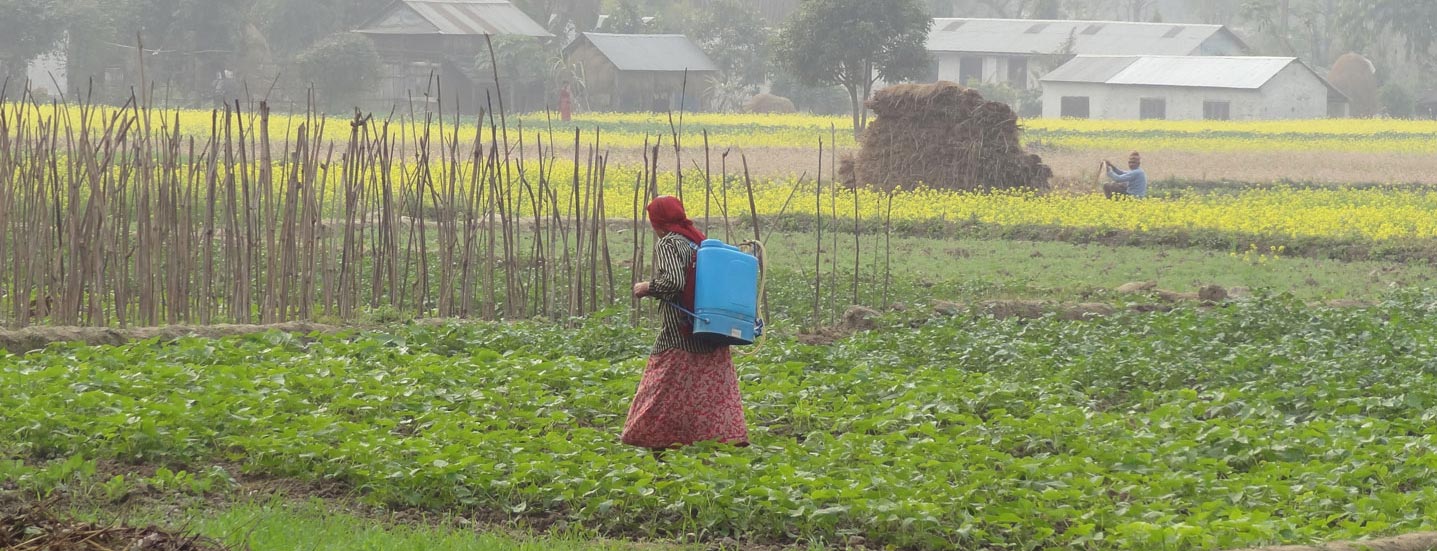By Landesa Responsible Investments in Property and Land (RIPL) Project
This blog was produced for the LEGEND Land Policy Bulletin. Land: Enhancing Governance for Economic Development (LEGEND) is a DFID programme that aims to improve land rights protection, knowledge and information, and the quality of private sector investment in DFID priority countries.
Agricultural investments can benefit local communities, but evidence suggests that women lose out on those benefits and bear a disproportionate share of the negative impacts. Landesa and other organisations are working to address the limited research on this topic and provide practical guidance to investors and other relevant stakeholders on how to develop gender-sensitive investments.
Land rights — who holds them, how strong they are — are one of the key factors influencing who participates in land investment negotiations within communities, and who may ultimately benefit from them. This means that women’s weaker land rights can make them more vulnerable to losing out in investment processes. Though large-scale land acquisitions have attracted global attention, far less consideration has been paid to their gender aspects. However, a number of organisations are working to address this research gap and are yielding new insights.
Women more likely to be negatively affected by land- based investments
Changes in land use tend to affect men and women differently. Where investments result in communities losing land, women are likely to be disproportionately affected. Although impacts on women and men are varied and context-specific, initial research suggests that changes in land use and/or control can result in:
- Land traditionally used by women being given away. Communities might allocate land traditionally used by women to investors, or men may take control of crops previously in a female domain once the new value of the crops is proven.*
- Women working longer hours to provide food and water for the household. As land becomes scarcer, women tend to have to work longer hours and walk longer distances to farm and collect water and wood. Since women tend to be the main food providers, this impacts them far more than men and cuts their productivity.
- Further erosion of women’s rights. Evidence indicates that as pressures on land increase, women’s land rights become even weaker. In Uganda and Tanzania, studies have shown that increased competition for land can cause a breakdown in customary rules, especially those related to managing communal land resources. This results in a reinterpretation of those rules that further weakens women’s access to, use of, and ownership of land.
- Men benefitting more than women from new employment opportunities. Although investments can result in new job opportunities for local communities, these jobs tend to benefit men disproportionately. In the Philippines, for example, one company acquired land along coastlines for shrimp farms, which resulted in new seasonal employment opportunities for men but not for women.
Customary norms and practices undermine women’s access to and control over land
Customary norms and practices often greatly influence how investment projects impact a community. While contexts differ, customary norms and practices often undermine women’s rights when land is commoditised or when outside interests are present:
- Women’s customary land rights are more vulnerable. Even though customary tenure systems may recognise women’s right to land and both men and women report a relatively high degree of joint ownership, women’s names are rarely on the documents, making them more vulnerable to losing their rights.
- Women have limited participation in decision- making processes. Customary practices often obstruct women’s participation in decision-making processes about land governance and benefit-sharing from land investments.
- Women are often excluded from negotiations and benefit sharing. Women’s exclusion from community discussions about land governance in turn limits their participation in community consultations with potential investors. This impacts how land is valued, how and to whom compensation is paid, and how benefits from the investment are shared. Even if women participate in a contract farming scheme, they often do not control the profits they make as men are typically in charge of household income.
Since customary norms create gender inequalities when it comes to land, investments are likely to result in differentiated outcomes for men and women. These barriers can block investors from creating better outcomes for women, as local issues around gendered land ownership are often highly complex.
Recommendations and way forward
All these issues present challenges to companies seeking to make socially responsible land investments (which is different from Corporate Social Responsibility and should be part of core operational business thinking). Failing to take gender differences into account is likely to leave women without a voice – and potentially in an even worse position than they were prior to the investment. In the long term, this could increase the company’s operational costs and reputational risk.
Women’s needs and rights therefore need to be explicitly factored in when designing projects. ‘Gender-neutral’ land tenure analyses can be poorly conceived and implemented because they wrongly presume that rules apply equally to men and women. It is therefore crucial to understand and address gender differences in the context of commercial agriculture. Adequate budget, staffing allocations and targeted activities (as outlined in a comprehensive gender strategy adaptable to the local context) are good starting points.
Companies can overcome these hurdles, but they need clarity and support. Landesa’s ‘Playbooks’, which are being developed under the Responsible Investments in Property and Land project, aim to educate companies on the importance of women’s land rights. The Playbooks give step-by-step guidance to help companies reduce their land-related risk, while ensuring that women and men affected by land-related investments benefit equitably.
In order to protect and promote women’s rights in land-based investments, efforts must be undertaken not only by investors, but also by governments, practitioners and communities.
For more information contact Leslie Hannay at leslieh@resourceequity.org


